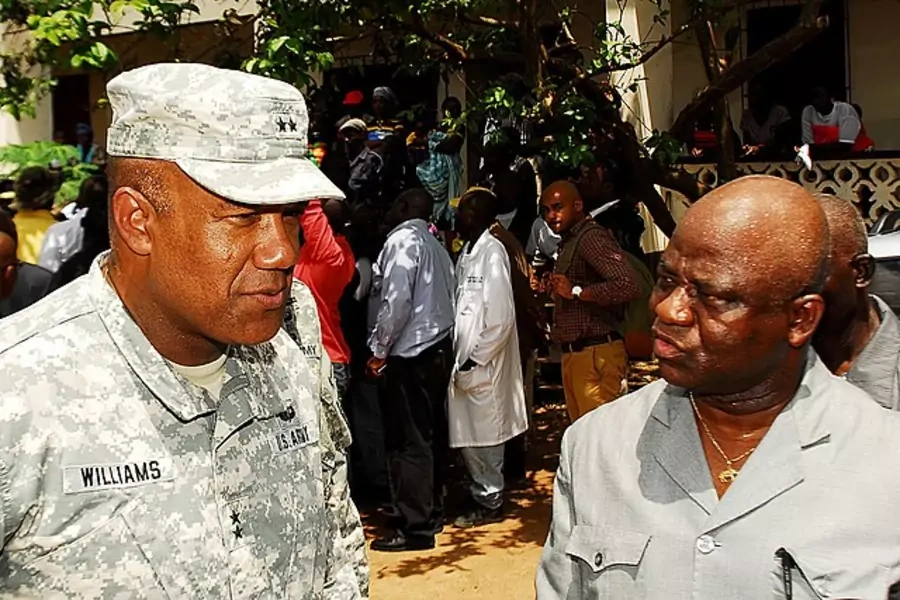Jail Term for Former Liberian Defense Minister Offers Ray of Hope to Anti-Corruption Forces in Africa

Last week, the Liberian Supreme Court affirmed the ruling of a lower court which ordered the imprisonment of former Liberian Defense Minister Brownie Jeffrey Samukai Jr. for two years. A one-time deputy minister in the country’s Ministry of National Defense, Samukai was former President Ellen Johnson Sirleaf’s pick to head the ministry when the latter took over the reins as president in January 2006. No matter what happens next, the Supreme Court’s decision—which was based on Samukai’s failure to comply with the lower court’s ruling—is a victory for the rule of law and an important milestone in the struggle to root out corruption from public life across Africa.
In March 2020, Judge Yamie Quiqui Gbeisay, presiding at Criminal Court C in the capital Monrovia’s Temple of Justice, found Samukai and two former deputies—Joseph F. Johnson and James Nyumah Dorkor—guilty of charge of “misuse of public money, theft of property, and criminal conspiracy” and ordered the men to return over a million dollars to the coffers of the Armed Forces of Liberia (AFL) and the Government of Liberia, respectively. The latest ruling upholds the decision of the lower court, although Samukai and his former deputies can still avoid jail if they “restitute the full amount…within the period of six months and plan with the court to pay the remaining portion in one year.”
More on:
It is instructive that Samukai’s conviction relates to mismanagement of pension funds meant for members of the Liberian armed forces. Military mutinies over unpaid salaries and allowances are a perennial fixture of unrest and political instability across West Africa. Last week’s military takeover in Burkina Faso was preceded by widespread unrest across military bases in the capital Ouagadougou.
Anti-corruption forces across the sub-region and the rest of the continent will welcome the Liberian Supreme Court’s ruling as a much-needed indication that a corner has been turned. While petty crime in Africa is regularly—if disproportionately—punished, members of the political elite and others with powerful connections have often avoided jail. A ‘Big Man’ who is somehow unlucky to be prosecuted and convicted can almost always count on a quick executive pardon. This reinforces public perception that justice is selectively pursued, if at all, thus undermining the rule of law.
Executive pardons aside, members of the political elite can pressure and successfully sabotage the legal system by mobilizing ethnic and regional sentiment, a tactic that often succeeds in an environment where ethno-regional and other affective ties continue to be salient. In South Africa, former President Jacob Zuma’s supporters and Zulu co-ethnics believe that his fifteen-month sentence for contempt of court in relation to a state investigation of corruption allegations is politically motivated, a perception that Zuma has done little to discourage.
Zuma is far from the only African leader to stoke ethnic tension with the aim of portraying himself as a victim, casting the judiciary in an unfavorable light, and undercutting public trust in its fairness.
As a senator-elect after clinching the December 2020 Special Senate Elections in the country’s northern Lofa County, Samukai may find the established playbook irresistible. A local group, Movement Lofa Citizens, was quick to characterize the Supreme Court ruling as a political witch hunt intended to “disgrace, intimidate and dehumanize” him.
More on:
Samukai’s case highlights the conjoined promises and perils of fighting corruption and championing the rule of law across Africa.
This publication is part of the Diamonstein-Spielvogel Project on the Future of Democracy.
 Online Store
Online Store